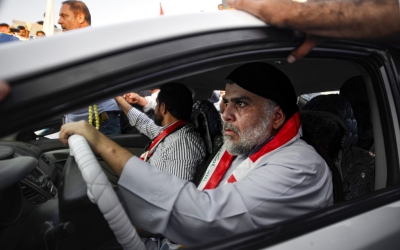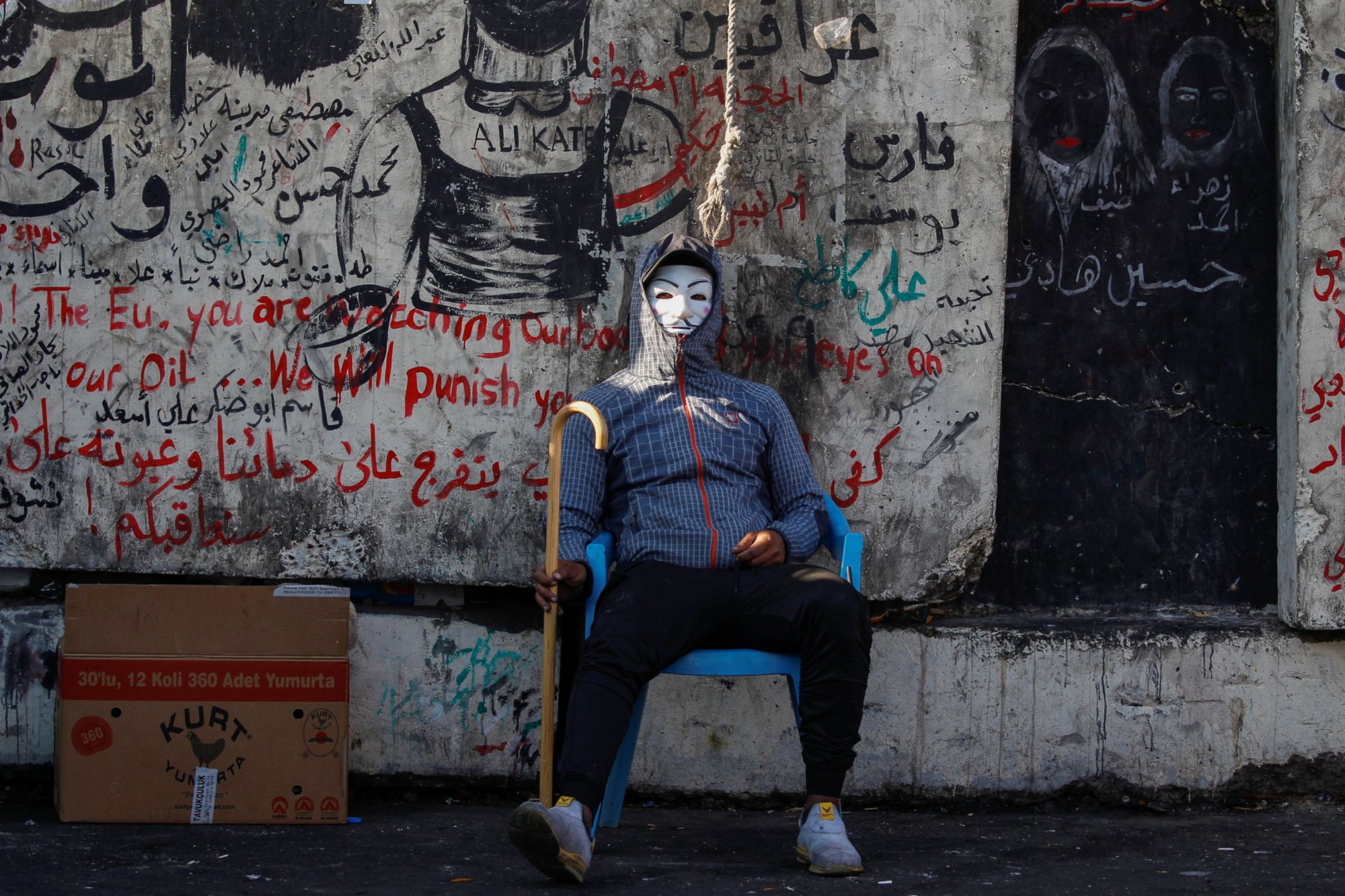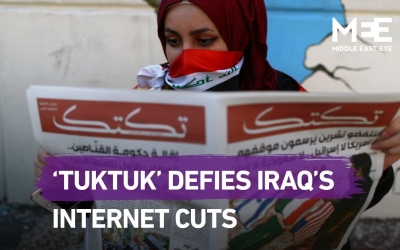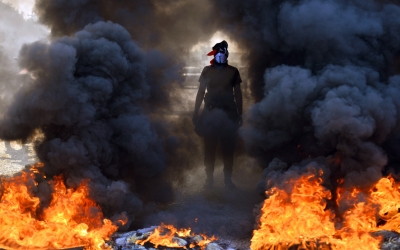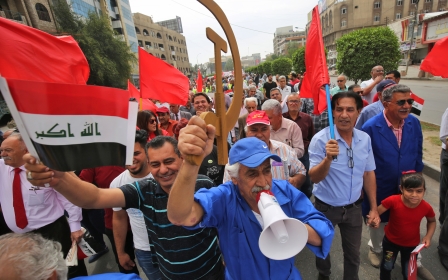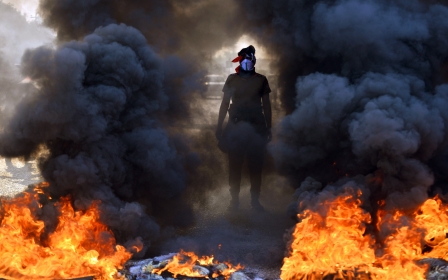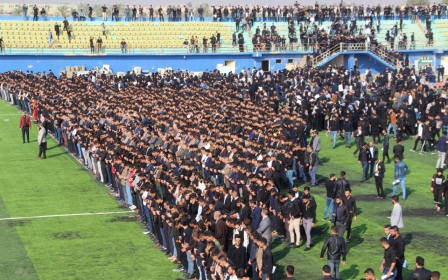In Baghdad, protesters wary amid growing atmosphere of suspicion
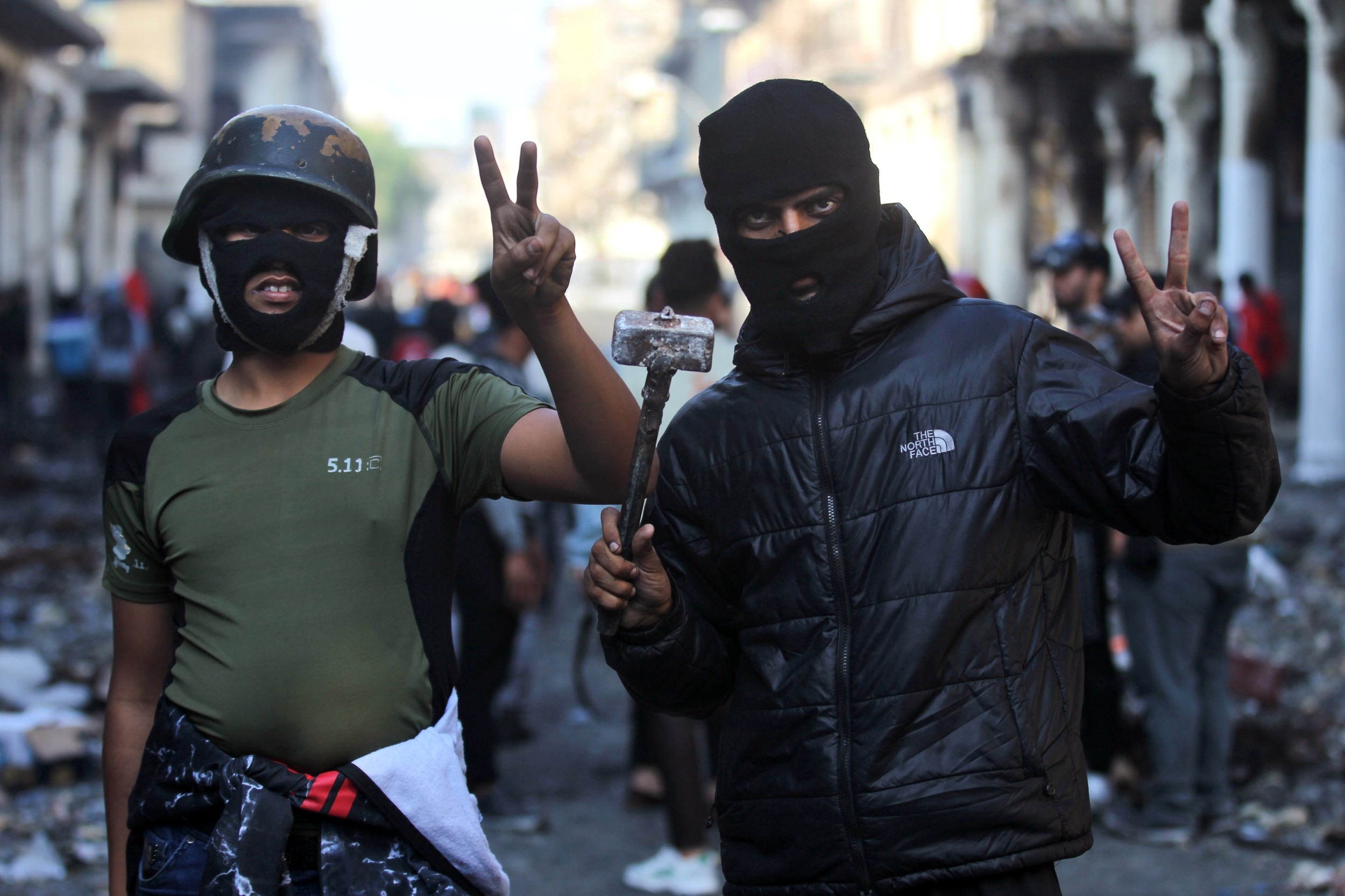
Students still clean the streets, medics tend to the occasional wounded and old ladies give out free food or wash protesters' clothes, but beneath the philanthropic exterior, the cracks are beginning to show in Baghdad's Tahrir Square, where competing interests are jostling for space.
Protesters, who increasingly cover their faces to conceal identities, speak in low tones about what they see as an infiltration of the popular uprising by "thugs".
The killing on Friday of at least 23 people - 20 protesters and three police officers according to news agencies - after unidentified gunmen attacked the protest camp is the latest reminder of the increasingly volatile environment in which demonstrations are taking place.
"There are good people here, but also bad people, drunk people and people on drugs. Each person does what he likes," said Mohamed, a protester at a bookstand near Tahrir Square. "It's the same with the Molotov cocktails being used by some protesters, which is really wrong, especially because some of us just want to carry the Iraqi flag."
Mohamed accused troublemakers at the demonstrations of increasingly using what started out two months ago as largely peaceful protests as a cover for their own ends.
"At night, some people come with knives and light weapons and try to destroy the protest from within," Mohamed said. "We don't know what to do, and there's no one here to say what's wrong and what's right."
In the occupied stretch running several kilometres around Tahrir Square that has, for weeks, stood outside government control, anyone can act as self-appointed security. Masked youths holding walkie-talkies stand on street corners. Others dressed in military-style fatigues and flak jackets, the pockets of which are filled with empty tear gas canisters and sticks, roam the streets.
Among the protesters themselves, police batons, wooden sticks and iron bars are now more openly in view. A young woman with her face wrapped tightly in a scarf, a baton sitting across her knees, searched ladies' bags at the entrance to a small garden behind Tahrir Square housing tents representing various civilian groups.
No one is sure who anyone else is, or who can be trusted, which is why so many demonstrators told Middle East Eye they now choose to wear masks.
Government forces have come under fierce criticism for their heavy-handed response to protesters, which has left over 400 dead and some 20,000 wounded. Now, unarmed soldiers policing the fringes of Baghdad's protest area, cordoned off with concrete blast walls, are some of the few who do not cover their faces.
Growing instability within Baghdad's uprising movement prompted large numbers of supporters of the Hashd al-Shaabi (Popular Mobilisation Forces), established in 2014 as a paramilitary force to fight the Islamic State (IS) group, to join the Baghdad protest for several hours on Thursday.
Following an edict from the country's top Shia cleric, Grand Ayatollah Ali Sistani, the official Hashd stands with the protesters rather than the government.
A Hashd soldier not present at Tahrir Square told MEE that the group's presence there was intended to support protesters and keep them safe, both from individuals trying to incite violence amongst demonstrators and security forces deploying excessive use of force.
Reports of several stabbings after Hashd supporters left was a deliberate move by troublemakers to provoke further instability, he alleged.
With an increased presence of light weapons within the protest area, it remains unclear who the perpetrators of the deadly attack were.
Infiltration and suspect funding
Speaking on condition of anonymity, an Iraqi journalist told MEE that infiltration by "parties" - Iraq's various political movements, some of which have affiliated armed groups - among genuine protesters was to blame for the increasingly uncomfortable environment in Tahrir Square.
"The parties" is the generalised phrase on the lips of many protesters, avoiding the dangers of outright accusing specific individuals or groups. Protesters accuse such parties of being at the heart of Iraq's political problems, and say their affiliates - including threatening groups of supporters perhaps acting independently - are starting to rot Baghdad's uprising from the inside out.
"If the demonstrations succeed, they will destroy the interests of the parties, which is why they are trying to corrupt the demonstrations in any way possible," one told MEE.
Meanwhile, some accuse the protest movement of receiving external support. One Iraqi diplomat, speaking on condition of anonymity, told MEE he believed the protests were being supported by other countries with vested interests in keeping Iraq in a state of instability, as well as Iraqi expatriates.
Certain sights do indeed raise questions in Tahrir Square, where unemployed teenagers drive brand new tuk-tuks. Most claim to have borrowed them or say they were purchased with money collected by ordinary civilians, but the vehicles number in the hundreds.
Now famous for their role in ferrying the wounded from the protest's front lines, tuk-tuks were relatively scarce in Baghdad before the protests but have since become ubiquitous.
A stall-holder selling plastic toy tuk-tuks said his merchandise had arrived from China a year ago with a shipment of other goods and he hadn't known what to do with them until now. "We have to take advantage and sell them while we can," he told MEE cheerfully.
Other youths wield high-end cameras. "Someone gave me this camera to photograph the protests, and I just take photos and put them on social media," 15-year-old Ahmed from the poverty-stricken suburb of Sadr City told MEE.
The flags - American, Israeli and a single Iranian one - painted on the streets of a now-pedestrianised underpass in the area occupied by the protests hint at the countries most hated or mistrusted by some protesters - while the diplomat told MEE he believed neighbouring Arab Gulf states were also implicated.
Deteriorating press freedom
Regardless of who may be fuelling the darker side of the protests, for Iraqi social media activists the situation is becoming increasingly untenable.
One demonstrator said an activist friend who had written posts on social media describing the more negative undercurrents emerging in Tahrir Square had been abducted in a taxi and beaten by unknown men, prompting him to flee the capital.
Iraq's High Commission for Human Rights said it continued to receive reports of kidnappings of activists, journalists and lawyers by "unknown persons". The independent institution has repeatedly urged protesters not to use weapons, called on the government and security forces not to use excessive violence, and advocated for the release of arrested demonstrators and the upholding of press freedom.
Media freedom has been under fire since the protests sparked a government crackdown, with reports of local journalists being prevented from doing their work or even assaulted by Iraqi security forces. In late October, the offices of several local and regional channels were shut down and others handed warnings.
But a crackdown on media freedom is now appearing inside the protests. Middle East Eye witnessed growing suspicion and verbal hostility towards foreign reporters. One civilian demanded press cards and credentials while refusing to show his own ID card, and a western journalist was warned by seemingly well-meaning protesters that asking questions was now a dangerous undertaking given tensions at the site of the protests.
One demonstrator said he had been briefly questioned by unknown men after speaking to western journalists, while another pretended not to understand English, explaining later that he could be accused of being an informant if seen speaking in English with a foreigner.
Protesters are even turning on local journalists. An Iraqi photographer who had covered events at Tahrir Square every day since early October said he was now too terrified to return to the site, after a widely shared photo he took sparked the ire of protesters and the government, with both sides misinterpreting the picture as offensive.
"People posted my photo with incorrect captions and, because my name was attached, I was tracked down," he told MEE, speaking on condition of anonymity. "I received threatening phone calls, and then people affiliated with both the protests and the government threatened me in person."
With a sarcastic laugh, he added: "Freedom of speech? Freedom for media? Ha. This is Iraq, and this is just the way things are."
Middle East Eye propose une couverture et une analyse indépendantes et incomparables du Moyen-Orient, de l’Afrique du Nord et d’autres régions du monde. Pour en savoir plus sur la reprise de ce contenu et les frais qui s’appliquent, veuillez remplir ce formulaire [en anglais]. Pour en savoir plus sur MEE, cliquez ici [en anglais].


